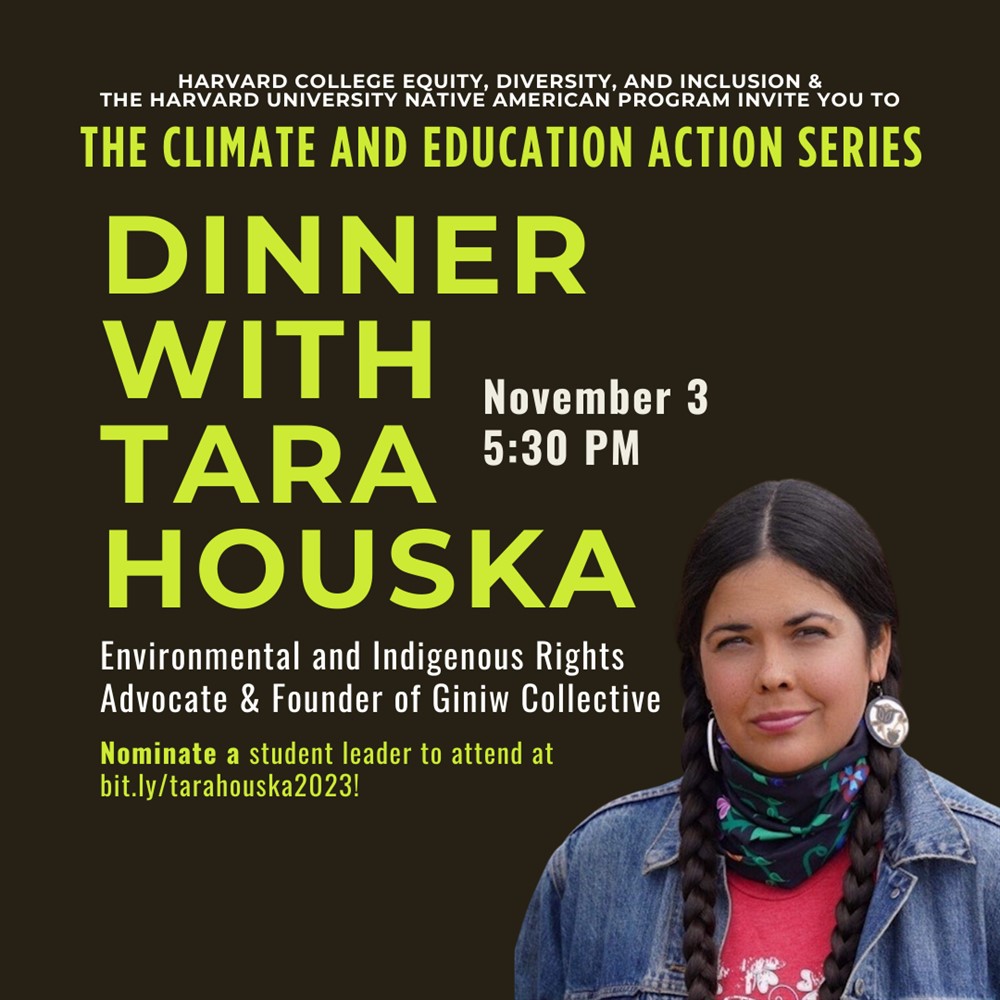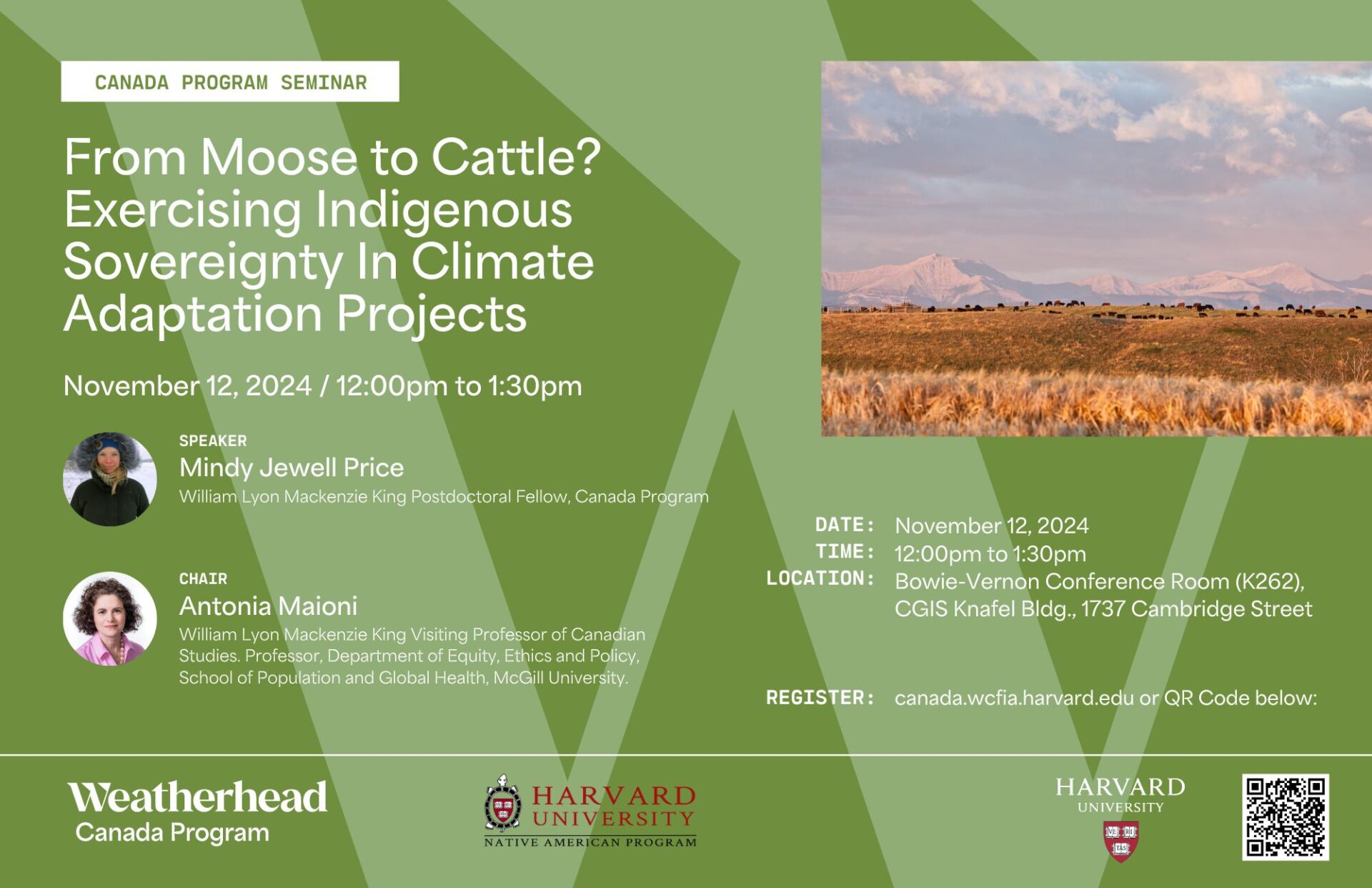The Climate and Education Action Series: Dinner with Tara Houska
The Harvard College equity, diversity, and inclusion team is proud to have secured a Johnson Climate Action Grant, whereby we are exploring climate justice. We are hosting a series of events across the academic year that center the intersections of climate justice and empowering members of the College to engage in reflection and move to action. We are excited to invite a small group of College students to dinner with tribal rights attorney and founder of the Giniw Collective, Tara Houska, on Friday, November 3rd at 5:30 PM following the "Responsibility and Repair: Legacies of Indigenous Enslavement, Indenture, and Colonization at Harvard and Beyond Evening” led by the Harvard University Native American Program, in partnership with The Radcliffe Institute. Please follow this link to recommend students who might be particularly interested in attending and engaging with this dynamic leader on the power of her activism, and her inspiring impact.

